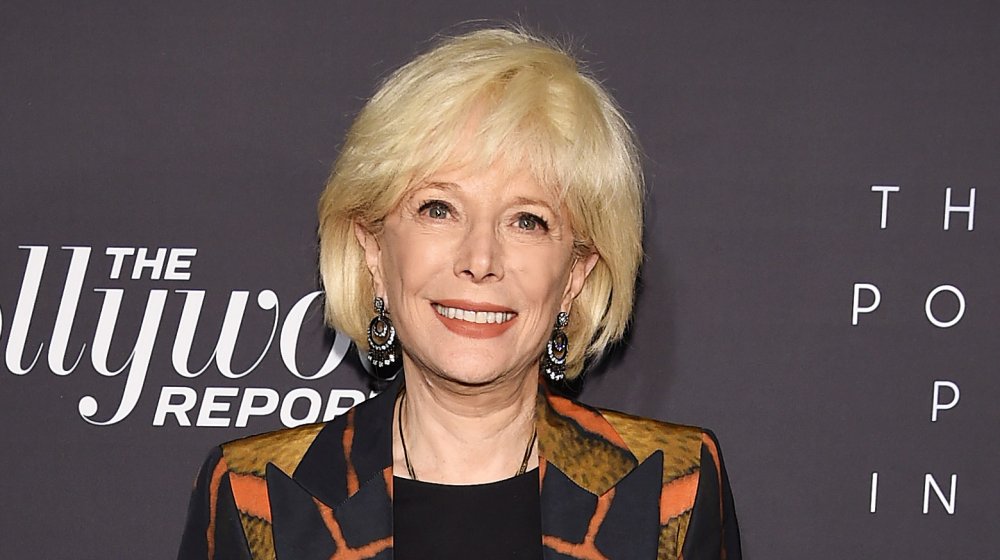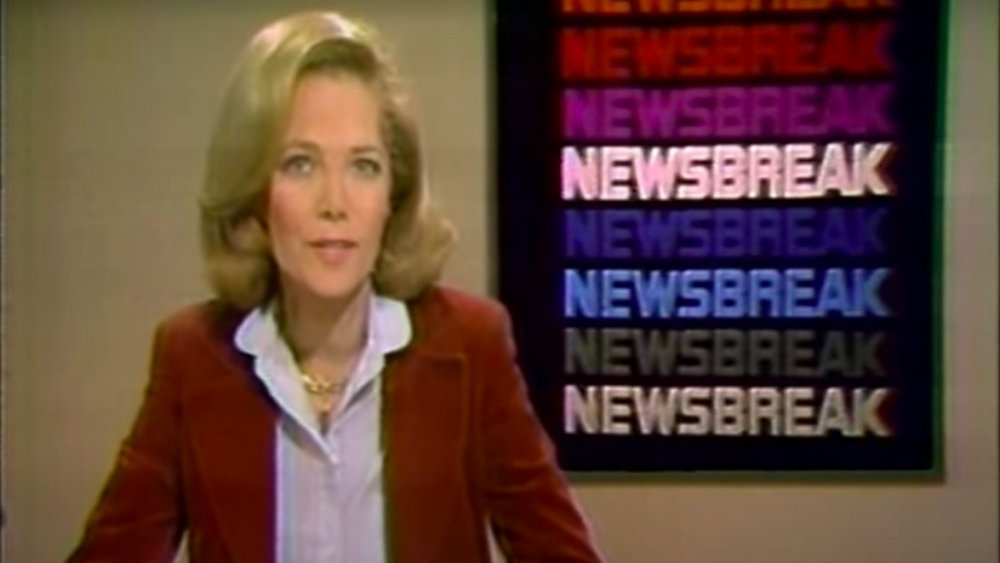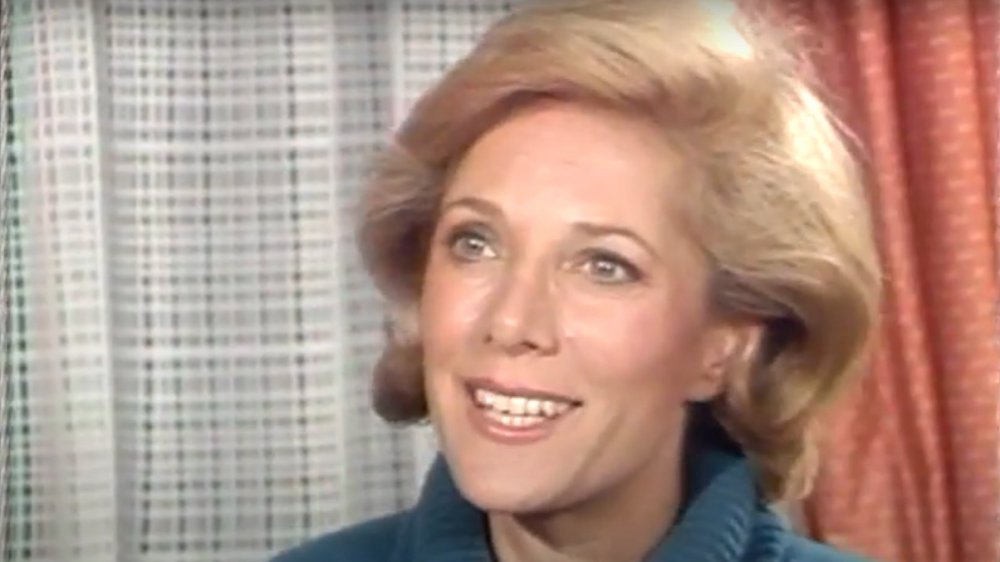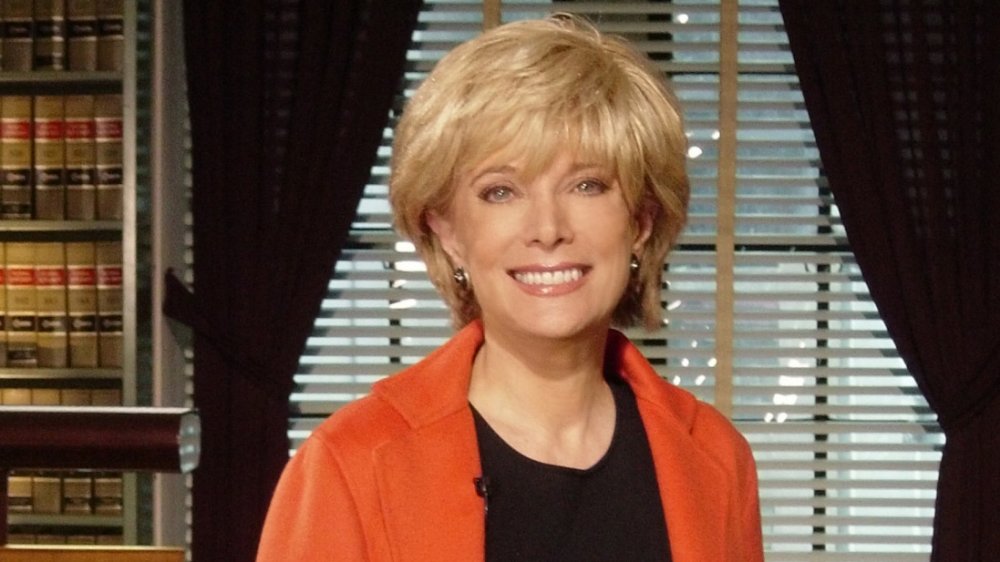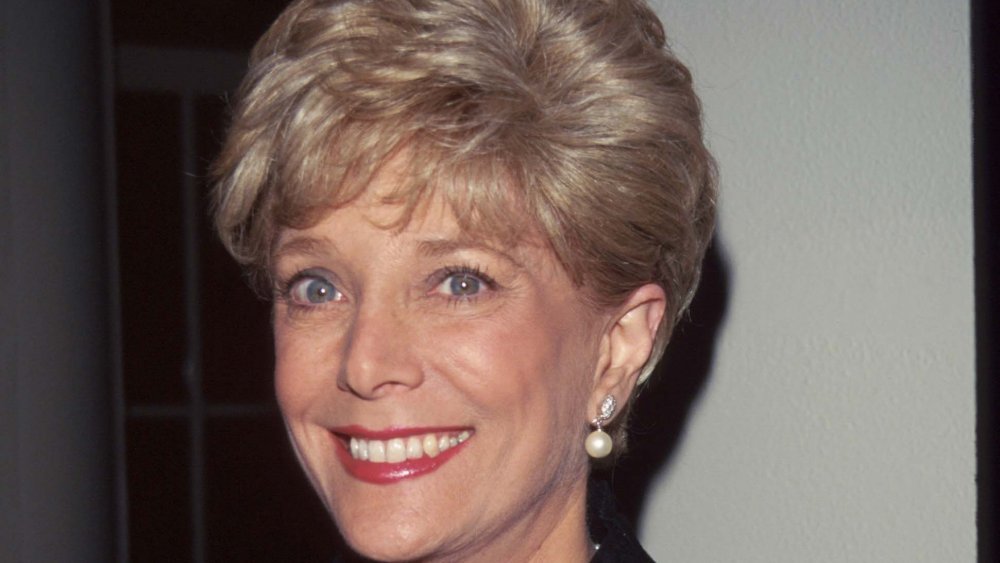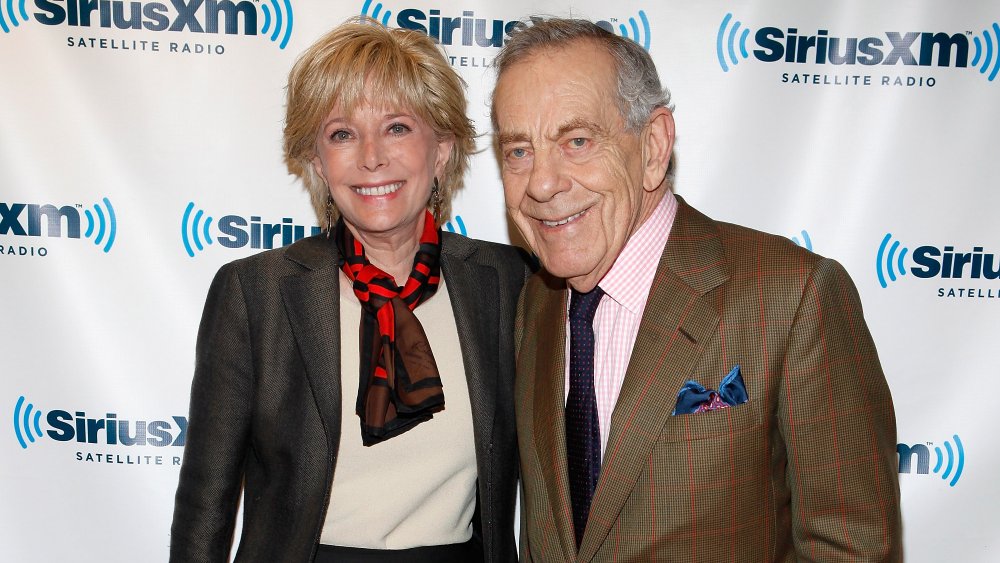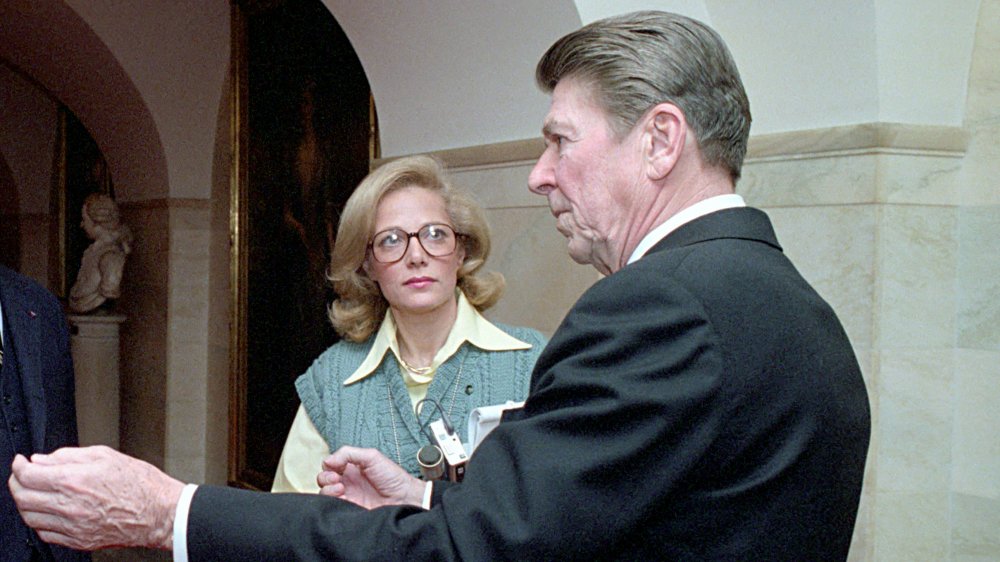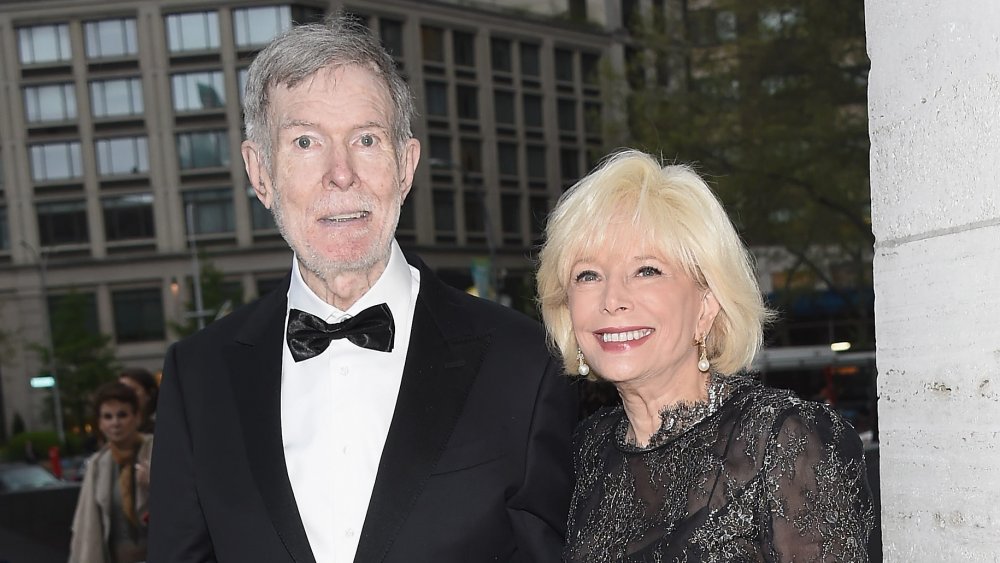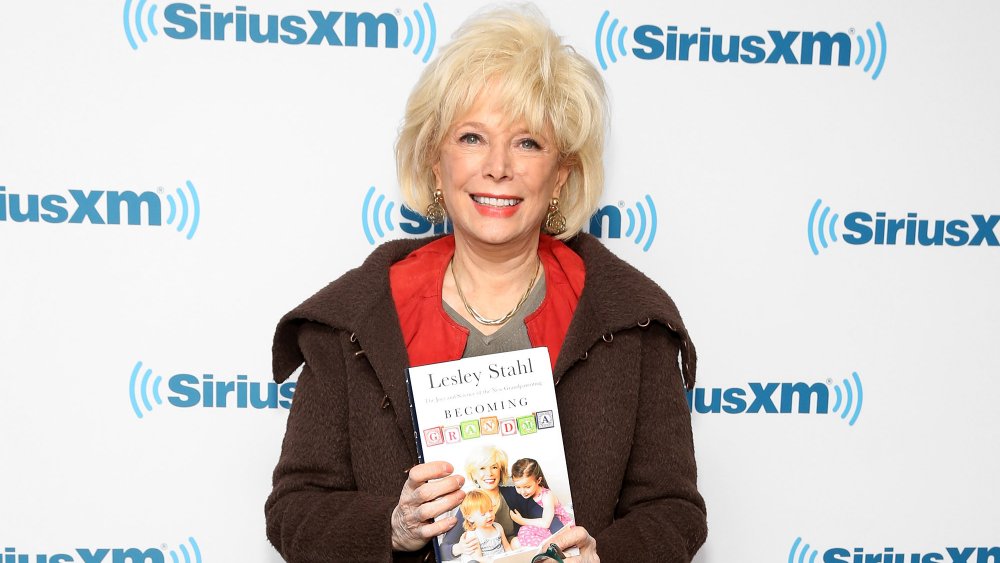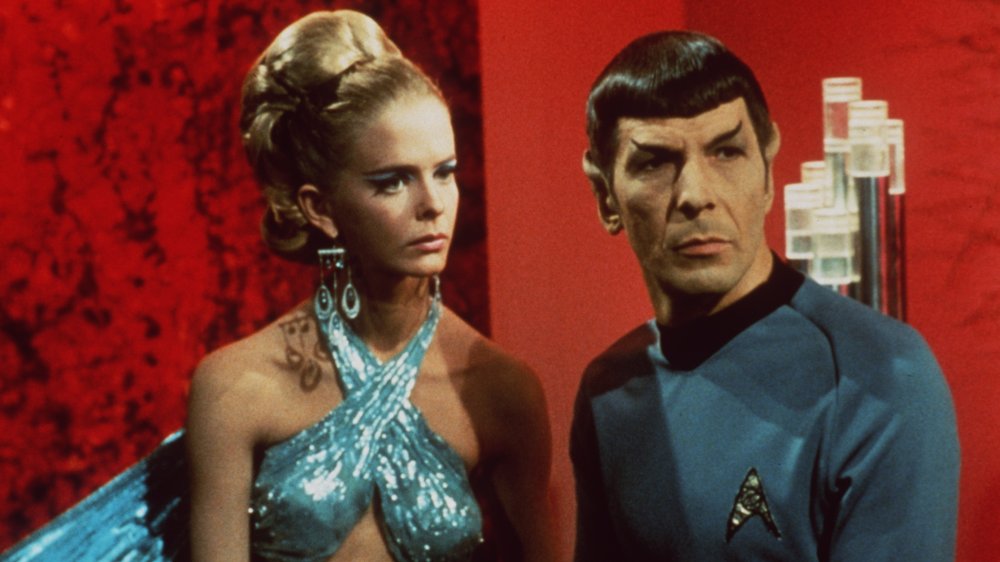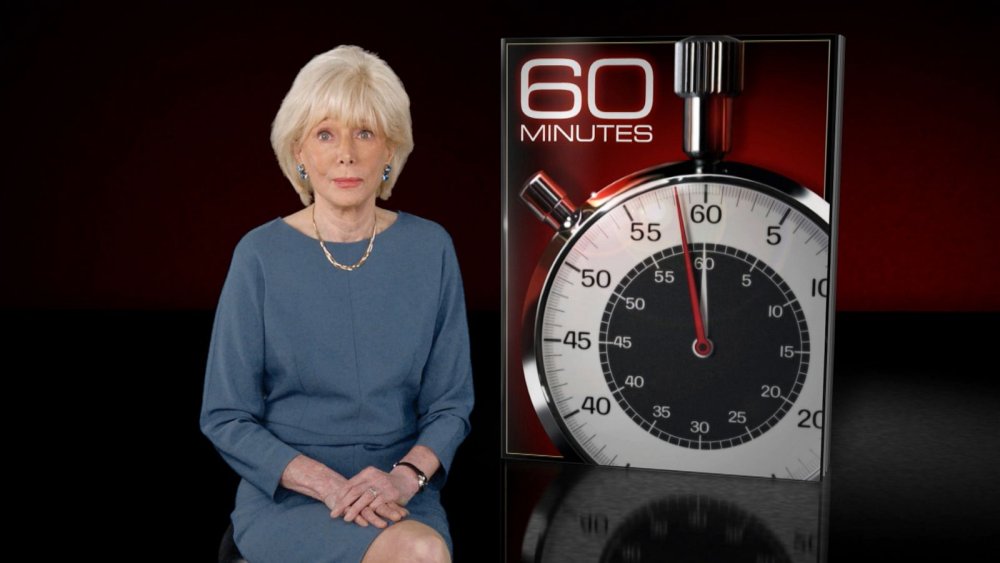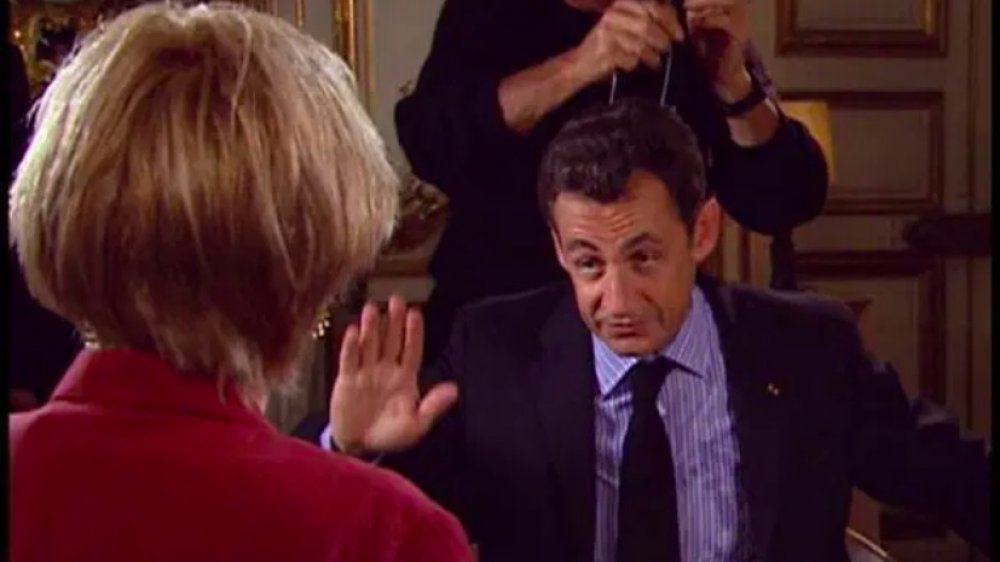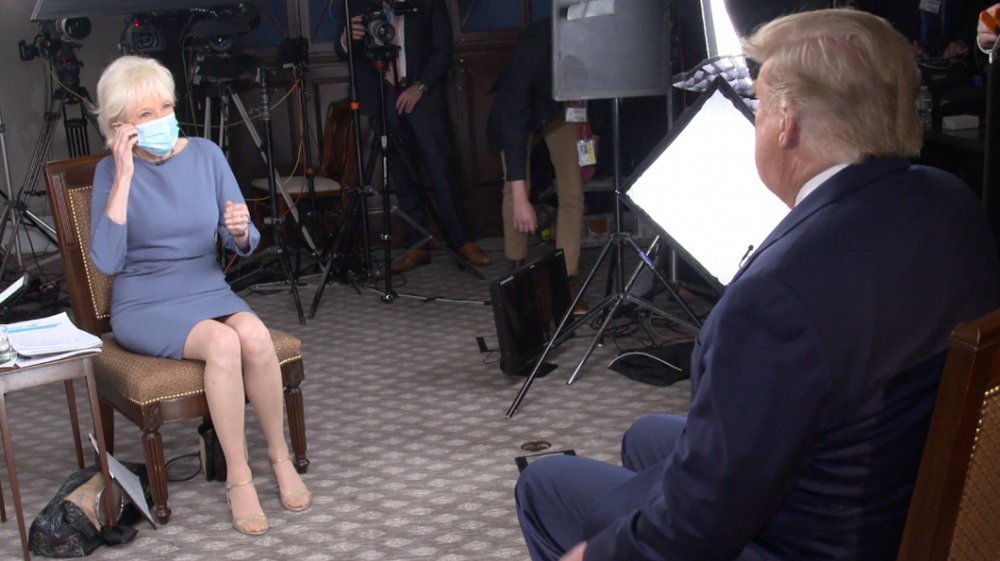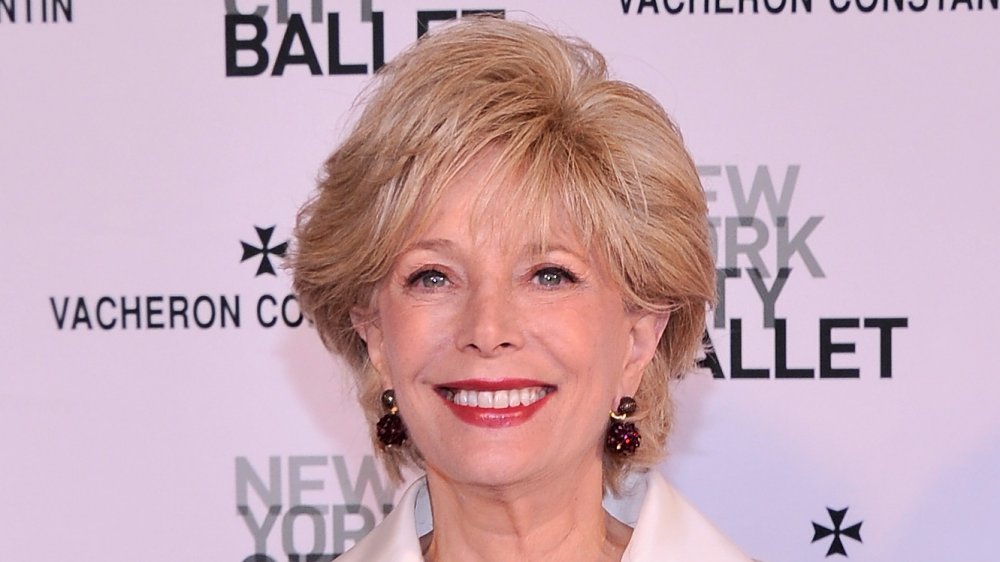The Untold Truth Of Lesley Stahl
There are few American journalists more revered than Lesley Stahl. According to her network bio, Stahl joined acclaimed CBS newsmagazine 60 Minutes in 1991, with her career having been characterized by "political scoops, investigations, surprising features, and award-winning foreign reporting," all of which contributed to a Lifetime Achievement Emmy in 2003 for overall excellence in reporting.
Prior to 60 Minutes, Stahl served as CBS News' White House correspondent — "the first woman to hold that job" — during the presidencies of Jimmy Carter, Ronald Reagan, and George H.W. Bush. In a 2006 interview for the Television Academy, Stahl zeroed in on the single greatest trait that's guided her career in broadcast journalism: tenacity. "I think I knew by instinct ... that the door kicking part of was necessary, the idea that you make a hundred calls instead of just 50, and that you don't take no for an answer," she said. That philosophy held true in October 2020, when her refusal to allow President Donald Trump to dodge her "tough" questions led him to prematurely pull the plug on the contentious interview.
Loyal viewers of 60 Minutes have watched Stahl for decades, yet there's a lot about her life they probably don't know. Read on to discover the untold truth of Lesley Stahl.
Lesley Stahl is proud to be an 'affirmative action baby'
When Lesley Stahl began her career working as a reporter for a Boston TV station in the early 1970s, the notion of a female journalist was still seen as something of a novelty in a field that had traditionally been dominated by men. When Stahl learned that all three US networks were seeking women for their news divisions due to affirmative-action programs encouraging employers to hire women and minorities, she jumped at the opportunity. "I was definitely, positively, no mistake about it, hired because of affirmative action," she told the Detroit Free Press.
"It was clear what they were doing, and in fact, the affirmative-action hires were really brought in as apprentices," she explained. "I was hired to work in the Washington bureau with Bernie Shaw and Connie Chung. We called ourselves the affirmative-action babies." However, Stahl said that she and her fellow females never felt resentful. "We were just happy to be in the door," she admitted.
While there were indignities along the way — women were given "little children's desks," she said — Stahl felt her superiors "wanted us to succeed and they put some effort into bringing us along and helping us."
The feminist reason Lesley Stahl didn't breastfeed her daughter
Struggling to make a mark as one of the "affirmative-action" females in a man's world did not come without sacrifices. Speaking with The Hollywood Reporter, Lesley Stahl revealed that when her daughter, Taylor, was born in 1977, she decided not to breastfeed. The reason for this, she explained, was because she didn't want to be perceived as being on a different level than her male colleagues.
"The men didn't breastfeed," Stahl explained, "we're not going to show up at the office and be different from the men — we're just not."
The way Stahl saw it, she and her contemporaries had managed to kick open a door, and they were determined not to let it close up again and bar future females from continuing on the trail they were blazing. "My generation felt that we needed to prove that we were exactly like the men in every way," she added. "That we were as available, could go anywhere, cover any subject, do it as well as the men. We were the provers."
This is how she dealt with the 'boys club' in network news
Recalling her early days in network news in a 2017 interview with the Detroit Free Press, Lesley Stahl admitted that she didn't have any specific memories of sexist obstacles placed in her path. "I didn't have a rough time, and I don't have stories of sexism," she said. "We really were grateful to be in the door. It's kind of wonderful that women don't feel that anymore."
That interview took place before the events that ushered in the #MeToo movement, which gave Stahl the opportunity to reassess her experiences. In a subsequent interview with The Hollywood Reporter, Stahl admitted that reexamining the early years of her network news career through the prism of #MeToo led her to an epiphany: it wasn't that she didn't experience sexism, she merely refused to acknowledge it.
"My eyes have been opened," she admitted. "There was an element of a boys club, even for me. But I didn't feel it at the time because I put blinders on. I love what I do. I'm able to focus on my work. And then I go home. But I have had a little bit of an education about myself."
Lesley Stahl feels it's 'slow going' for female journalists
Despite all the achievements that Lesley Stahl and other trailblazing women made in broadcast journalism since the 1970s, she believes that there's still plenty of room for improvement when it comes to achieving true gender equality in newsrooms.
"It's been slow going," Stahl admitted in a 2018 interview with The Highlands Current. "In my naivete, I thought, the door's open, we'll prove ourselves, and we're on our way. We proved ourselves and still had to climb mountains. Maybe it was necessary that we had to earn our way, and maybe it had to take years, because no one can say we jumped the line because of affirmative action."
As an example, she cited a story she'd worked on for 60 Minutes about income inequality, admitting it was "stunning to learn that waitresses are tipped less than waiters are. There's something inherent in the system that pays women less. It's hard to change that, but the pressure needs to stay on, and we need more women in the executive suites."
Her 60 Minutes co-star once questioned her about her sex life on air
One of Lesley Stahl's most awkward onscreen moments didn't come from an interaction with a world leader, movie star, or Howard Stern, but from one of her fellow 60 Minutes correspondents.
In his column for the Observer back in 1999, director Peter Bogdanovich wrote about Stahl's appearance on ABC's 20/20, interviewed by Diane Sawyer to promote her book Reporting Live. Stahl opened up about her husband, journalist and screenwriter Aaron Latham, and his struggles with depression. It was her 60 Minutes colleague Mike Wallace, Stahl told Sawyer, who encouraged her to get help for her husband.
"At this point in the 20/20 interview, Ms. Sawyer and Ms. Stahl visited Mr. Wallace in his office over at CBS," wrote Bogdanovich, observing that Stahl and Sawyer "looked frightened to be in his presence." Sawyer then asked Wallace to reenact their conversation. As Wallace recalled, he asked Stahl if her husband was taking antidepressants, and she said he was. "And did it ruin your sex life?" he asked. According to Bogdanovich, later in the interview, Latham declared of Wallace, "He's a strange guy."
She nearly reported that President Ronald Reagan was 'a doddering space cadet'
Prior to 60 Minutes, Lesley Stahl served as CBS White House correspondent during the administrations of three US presidents. Among these was Ronald Reagan, who revealed in 1994 he'd been diagnosed with Alzheimer's disease. While there was no proof Reagan was suffering from the disease while in office, his son, Ron Reagan Jr., alleged that early symptoms were apparent during his father's second term.
In Mother Jones' excerpt from her 2000 book Reporting Live, Stahl seemingly backs that up. She wrote of paying Reagan a visit in the Oval Office and being shocked at encountering the president looking "as shriveled as a kumquat. He was so frail, his skin so paper-thin," she wrote. The president, she continued, "didn't seem to know who I was. He gave me a distant look with those milky eyes and shook my hand weakly. Oh, my, he's gonzo, I thought. I have to go out on the lawn tonight and tell my countrymen that the president of the United States is a doddering space cadet."
Stahl ultimately decided against that, but admitted she was "that close to reporting that Reagan was senile."
Her journalism background helped her husband battle Parkinson's disease
Lesley Stahl has an interesting connection to the John Travolta film Urban Cowboy. Both the Esquire article upon which the movie is based, and the film's screenplay were written by Stahl's husband, Aaron Latham. The couple faced a big adjustment in their lives, she told Brain & Life, when he was diagnosed with Parkinson's disease and was unable to type and write with ease.
Stahl, utilizing decades of experience as an investigative reporter, sought solutions. She discovered a Brooklyn gym that featured therapeutic boxing workouts specially designed to strengthen Parkinson's patients. "From the very beginning, boxing had a dramatic, positive effect on Aaron," Stahl told Brain & Life of the program, Rock Steady Boxing. "It not only helped Aaron physically [with the stiffness and tremors], but it did a lot for his confidence. He goes religiously, twice a week."
Latham discussed the benefits of Rock Steady Boxing in a segment on CBS Sunday Morning. "Boxing's just the opposite of Parkinson's. Instead of to shrink you, everything's designed to pump you up," said Latham, crediting the boxing gloves for providing "a different attitude toward the world. You get your physical courage back and your mental courage seems to kinda come along."
The heartwarming reason Lesley Stahl became an expert on grandmothers
When a woman becomes a grandmother, one typical response is to show off baby pictures to friends. Lesley Stahl, however, is not a typical grandma, and instead decided to write a book about the experience.
Published in 2016, Becoming Grandma took Stahl out of the hard-news milieu she was known for, while fully utilizing all the journalistic skills she'd built up over the course of decades. As she explained during a book-signing appearance covered by the Chicago Tribune, the book kind of came about by accident. As she recalled, a publisher took her to lunch in order to gauge her interest in writing a book about 60 Minutes. "I told him if I wrote a honest book about the show, I would be fired. And if I wasn't honest, the book would be dull," she said. "Then he suggested that I write a book about grandparenting instead."
As a grandmother herself, she was intrigued and began researching. "Grandparents don't have to be told to love their grandchildren. It just happens," said Stahl. "No one can really explain the feeling of being a grandmother. It is just that indescribable."
Lesley Stahl once put her knowledge of Star Trek to the test
Lesley Stahl is a lot of things, but it's fair to say that "Star Trek expert" is not one of them. She proved that in a 2016 appearance on NPR's Wait Wait... Don't Tell Me, when host Peter Sagal tested her on her knowledge of the venerable science-fiction franchise. Stahl wound up flubbing the first question, whether it was ventriloquist Edgar Bergen, comedienne Lucille Ball or the dolphin star of TV's Flipper who was responsible for the show coming to be; Stahl wrongly guessed it was Bergen, when it was actually the I Love Lucy star's Studio, Desilu, which greenlit Star Trek.
Stahl did better on the second question, correctly guessing that the reason the series "almost didn't make it to its second season" wasn't because of the cast's allergies to the StarFleet uniforms or the proposed addition of "a sexy space alien in a bikini," but due to the "insane diva catfight" between stars William Shatner and Leonard Nimoy.
Stahl then botched the final question when she wrongly guessed that series creator Gene Roddenberry hired Nimoy to play emotionless Vulcan Mr. Spock because "he had no emotional range as an actor."
Her reporting on COVID-19 became personal when she tested positive
The COVID-19 pandemic has been covered extensively by 60 Minutes. For Lesley Stahl, however, the novel coronavirus became more than just a news story when she tested positive herself. In the May 3 edition of the show, Stahl told viewers that she and some other members of the 60 Minutes team had contracted COVID-19.
As she explained, the virus seemed to affect each person who had it in a different way. "One COVID-positive 60 Minutes coworker had almost no symptoms while others had almost every symptom you can imagine," she explained. "Each case is different."
For Stahl, symptoms were severe enough that she was hospitalized. "After two weeks at home in bed, weak, fighting pneumonia, and really scared, I went to the hospital," she said. "I found an overworked, nearly overwhelmed staff. Every one of them kind, sympathetic, gentle and caring from the moment I arrived until the moment days later when I was wheeled out through a gauntlet of cheering medical workers. In the face of so much death, they celebrate their triumphs."
One world leader surprised Lesley Stahl more than any other
The list of luminaries interviewed by Lesley Stahl over decades is beyond impressive, ranging from movie stars to the heads of nations and other assorted newsmakers. Sitting down with N Magazine, she was asked which world leader proved to be the most surprising.
"Probably then-President Sarkozy of France, who you know walked out on me," she revealed. "He turned his microphone off and stormed off." As Stahl recalled, she was shocked to see a world leader become so emotional when she asked, "about his marriage, which was falling apart." As Stahl recalled, Sarkozy responded with "a vulgar word in French that was so vulgar that the interpreter wouldn't tell me what it was."
As for the presidents she'd covered, Stahl admitted she found both Jimmy Carter and Ronald Reagan, in their unique ways, to be "aloof," while George H.W. Bush was far more gregarious. "He loved people," Stahl recalled. "He bounced around the White House. He'd come into the pressroom. I kept bumping into him ... I had already known him when he was running the Republican Party, so I had a personal relationship with him, and I respected him enormously."
Lesley Stahl required round-the-clock security after her Trump interview
Ahead of each presidential election, it's become a 60 Minutes tradition to interview the presidential and vice presidential candidates from each party for a special episode of the show. The 2020 edition, however, went spectacularly off the rails thanks to Leslie Stahl's headline-making interview with President Donald Trump.
Stahl continually refuted Trump's unfounded allegations. "They spied on my campaign, Lesley," Trump stated at one point. "You know, this is 60 Minutes. And we can't put on things we can't verify," Stahl fired back, insisting there was "no real evidence of that." Trump appeared annoyed. "Your first statement was, 'Are you ready for tough questions,'" he complained. "Are you?" Stahl countered. "That's no way to talk," Trump sneered before telling someone off-camera, "I think we have enough of an interview here, OK. That's enough, let's go." He then abruptly ended the interview and walked off.
Subsequently, TMZ reported that CBS hired round-the-clock security for Stahl and her family after a death threat was received by "one of her immediate family members on the west coast," related to her Trump interview. Sources confirmed to TMZ that the Los Angeles Police Department had opened an investigation.
Lesley Stahl was asked to take a $500K pay cut because of Katie Couric
Lesley Stahl has never been one to publicly crow about how much money she makes. However, there was a time when her paycheck — and its relationship to the exorbitant salary of another female journalist at CBS News — created some awkward headlines, thanks to author Sheila Weller's network news tell-all The News Sorority.
One section of the book deals with the arrival of Katie Couric from NBC, when the former Today anchor was hired to anchor the CBS Evening News. Couric's astronomical salary — a reported $15 million per year — led the network's news division to ask its 60 Minutes correspondents to take pay cuts to free up money for Couric. As Daily News recapped Weller's book, "Morley Safer was supposed to earn 30% less and Lesley Stahl was asked to take $500,000 less in salary."
While Weller didn't indicate whether or not Stahl acceded to that request, it's safe to say that she's managed to put away a few bucks after all those decades at 60 Minutes. According to Celebrity Net Worth, Lesley Stahl is reportedly worth a cool $40 million.

